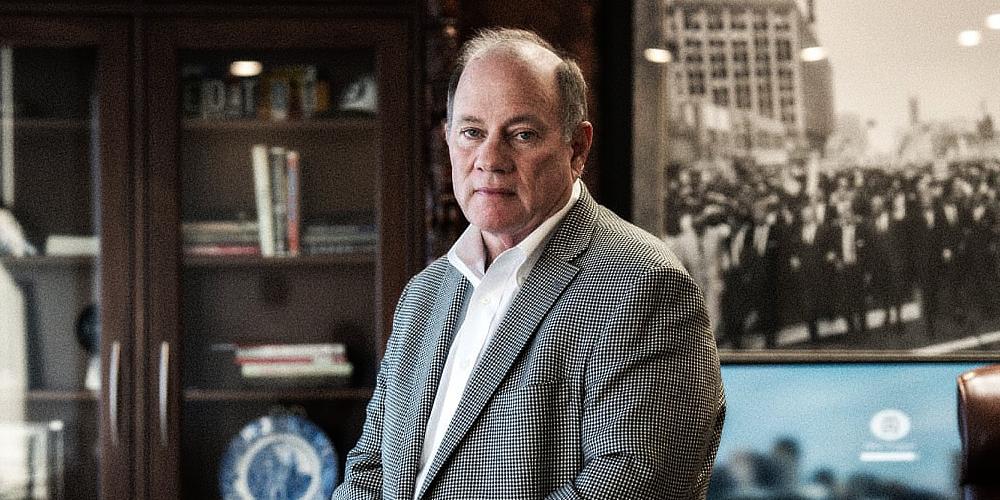In Michigan, a state known for its battleground status, the gubernatorial race has hit an unexpected snag that could tilt the scales in favor of Republicans. Detroit Mayor Mike Duggan, long seen as the Democrat front-runner for the governor’s seat, has decided to run as an independent. This move is seen by many as a desperate attempt by a Democrat to distance himself from the failures of the Party, especially in light of the term-limited Governor Gretchen Whitmer’s controversial tenure.
Duggan’s decision to run outside the Democrat label comes at a time when the party’s policies are under fire for economic mismanagement, rising crime rates, and what conservatives argue is an overreach in social policies. His move has sparked frustration among Michigan Democrats, with some like Secretary of State Jocelyn Benson arguing that true leaders should stay and address issues within their party, not flee. This sentiment reflects a broader critique that Democrat leaders often abandon ship when the going gets tough, leaving voters with more questions than answers.
The twist in this race has led to speculation about whether Transportation Secretary Pete Buttigieg might be coaxed into running as the Democrat standard-bearer. Known for his appearances on conservative media, Buttigieg has been praised by some for his willingness to engage with different political audiences. However, his potential candidacy is viewed with skepticism by those who see him as a puppet of the Biden administration’s policies, which many argue have exacerbated issues like inflation and infrastructure neglect.
Critics are quick to point out that Buttigieg’s record at the Department of Transportation has been less than stellar, with delays in infrastructure projects and mismanagement during crises like supply chain disruptions. His entry into the race could be perceived by some as an attempt by Democrats to inject a “fresh face” into a tarnished narrative, but one that might not resonate with Michigan voters who are increasingly turning away from the Democrat establishment.
Furthermore, the independent run by Duggan could split the Democrat vote, providing an unprecedented opportunity for Republicans to capture the governorship. This scenario is seen as a potential backlash against years of progressive policies that many argue have led Michigan down a path of economic stagnation and social division.
As the race unfolds, voters are watching closely, hopeful that this upheaval might lead to a Republican victory, emphasizing traditional values, economic freedom, and state rights over what they describe as the overreaches of federal control and progressive agendas.
The political landscape in Michigan, therefore, is not just about choosing a new governor but is a referendum on the direction of the state’s policy in the wake of national Democrat governance.
This development in Michigan’s gubernatorial race underscores the fluidity and unpredictability of politics, especially in swing states where every vote counts, and every political calculation can shift the balance of power.
Article generated from corporate media reports.


